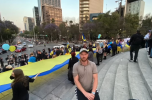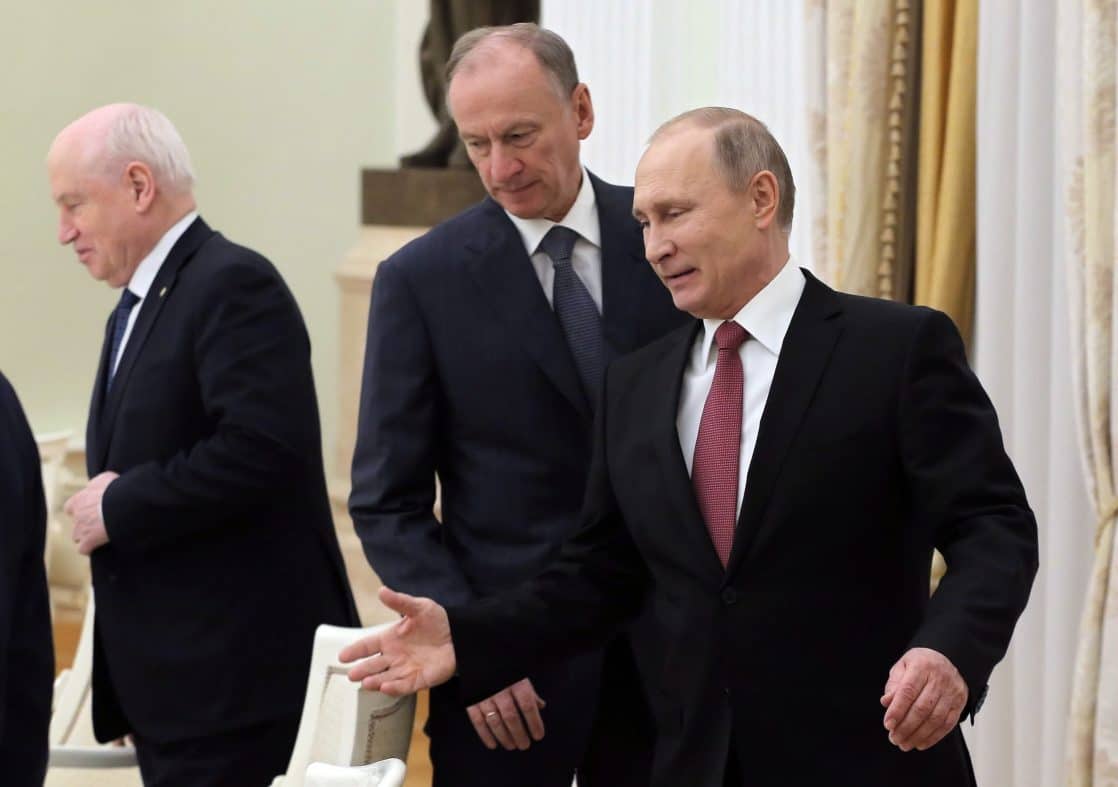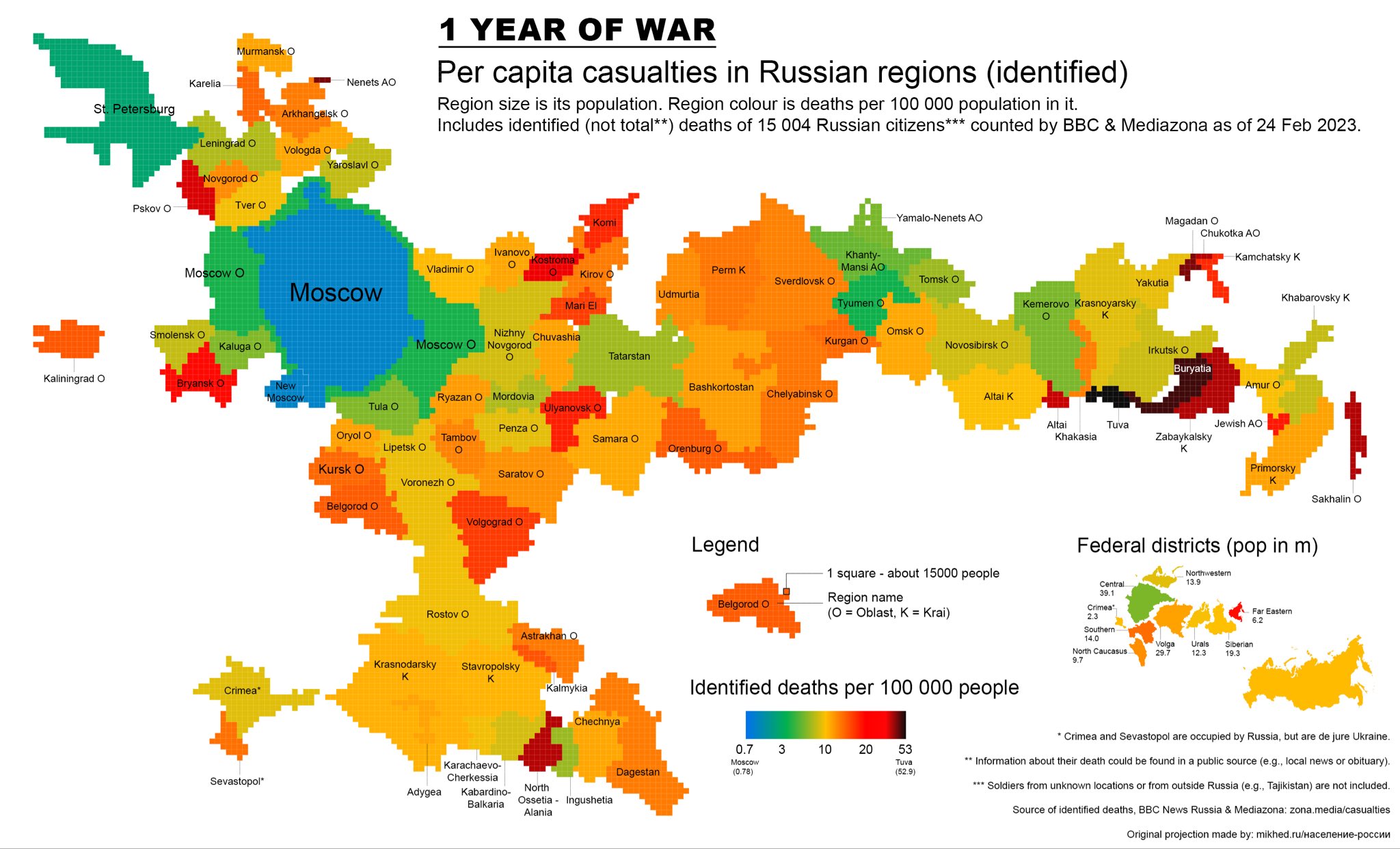“For everything that has been said, nothing awaits me but a sledgehammer, a mop, or, at best, a prison.” Russian officer Konstantin Yefremov, who fled to Mexico, gave a long interview to Novaya Gazeta Europe. We rephrased it
16:38, March 1, 2023
Source:
Novaya Gazeta Europe

Konstantin Yefremov at an anti-war rally in Mexico City. February 2023
"Gulag-no" / YouTube
Konstantin Efremov is 33 years old, he comes from Vladikavkaz. Before the war, he served under contract in Chechnya, in the 42nd motorized rifle division. His rank and position is senior lieutenant, commander of a demining platoon. After the Russian invasion of Ukraine, Efremov ended up in the occupied part of the Zaporozhye region and became, according to him, a witness to the torture of Ukrainians. The sapper tried to leave the army immediately after the start of the war, but he managed to leave the combat zone only in May. He left Russia for Mexico and is seeking asylum in the US. In early February, Yefremov spoke with
the BBC and
The Guardian , and on February 28 , Novaya Gazeta Europe published his
long interview . Meduza retells this text.
How Efremov ended up in the army: “The choice is simple - go to work where they pay”
Konstantin Efremov served his military service in 2009-2010. Then, according to him, he worked at "many different jobs." In 2013, he signed a contract with the Ministry of Defense. Later, having served in the army for almost seven years, he completed a four-month officer course and received the rank of senior lieutenant.
Efremov admits that he joined the army for the sake of money: “A person who has some kind of income and financial assistance from his parents can choose where he, according to his personal convictions, goes to work. And for me, a person who lives with his mother on 27 square meters and wants to start his own family, wants to get out of the swamp of poverty, the choice is simple - go to work where they pay.
According to him, in 2013, a driver in the army was paid 33 thousand rubles, and an electrical engineer (Efremov received such a profession) - 17 thousand. In addition, after six years of service, a military mortgage could be obtained. True, in order for housing to remain in the property, one would have to serve 20-30 years. “So-so prospect, but at least it looked real!” Efremov says.
The Russian army, as he puts it, "consists mainly of a cross section of people between beggar and poor." According to him, before the war, about 70% of the military approved of Vladimir Putin's policy, including in relation to the Crimea and Donbass. Yefremov was not in Ukraine until early 2022 and did not travel to Syria. His colleagues, as he himself says, asked to go there on business trips and even gave bribes for this, because they paid more for these trips.
I ... understood that for the sake of a salary to participate in the annexation of Crimea, to visit the Donbass or go to Syria, it means simply putting a stigma on yourself. Until February 2022, I was able to serve normally. I was a platoon leader. I cleared mines in Chechnya after the two wars that took place there. I didn’t become a major, I wasn’t someone’s nephew, someone’s snitch or some kind of ensign who drags everything home from the warehouse. I had no qualms about what I was getting paid for. Every day I went to work, where I could blow myself up.
Efremov wanted to leave the army at the beginning of the war, but did not achieve dismissal. Now he says it was "cowardice in the face of the threat of prison"
Shortly before the war, Efremov and his colleagues were sent to the Crimea, allegedly for exercises. Efremov himself, instead of commanding a demining platoon, was assigned to command a rifle platoon of a combined battalion. “Why, why and for what purpose, I have no idea. The problem is that there was not a single real motorized rifleman in this consolidated battalion. There were soldiers and sergeants of the RHBZ company , 100 people from the material support battalion. In general, only the rear,” says the former military man.
When it became clear that Russia had invaded Ukraine, Efremov was in Dzhankoy. According to him, he immediately reported that he wanted to quit. The division chief of staff responded by calling him "the most obscene words." Yefremov left Dzhankoy by taxi, trying to get in touch with a military lawyer along the way. He also spoke on the phone with colleagues, from whom he learned that there were checkpoints on the outskirts of Crimea. In addition, according to Yefremov, the military police were sent for him, and the orientation with his data was transferred to the Ministry of Internal Affairs.
As a result, the officer decided to return to Dzhankoy and file a report refusing to participate in the war. But, as he says, he did not succeed: “In all the dirt, bustle and confusion of the first days of the war, I looked just stupid: I ran around with this paper and could not give it to anyone, no one took it. <...> From 24 to 27 [February] I tried to give someone my report and quit. And then suddenly the command “on cars” came, and we drove to the border. Without stopping, we drove all the way to Melitopol.
His thoughts in connection with the fact that he became a participant in the invasion. Efremov describes it this way: “Yes, I frowned and tarnished my reputation. <…> You know, if I’m going to tell you now that I’m all so correct, anti-war, I worry only about innocent people, for Ukrainians, then… I, of course, worried. But first of all, a person is always afraid for his life. But how to live if you take the life of another person? I was lucky, by the will of God, I did not become a murderer. But I can’t forgive myself for cowardice in the face of the threat of prison, now I would sit down without hesitation. ”
Meduza in Russia is now not only a “foreign agent”, but also an “undesirable” organization. This status is much worse than before. Nevertheless, we continue to work. We can still be read. It is safe.
Here are all the answers to the disturbing questions.
Efremov guarded the headquarters of the rear of his division - and witnessed the torture of Ukrainians. The deputy commander of the division shot one of them in the hand and leg
In Melitopol, Yefremov and the fighters who were placed under his command, until about mid-April, guarded the artillery unit. There were problems with logistics, so they hunted hares and slept in cars along with shells, the officer says. After Melitopol, he was transferred to the village of Bilmak, Zaporozhye region. There, Efremov and his people guarded the headquarters of the rear of the division for about a month.
Yefremov, he claims, witnessed the torture of Ukrainians. He saw the interrogations of three captured servicemen of the Armed Forces of Ukraine. Two of them were beaten and threatened with a gun, but the third, a sniper born in 1993 who was surrounded in Mariupol, was mocked much more. He was interrogated by the deputy commander of the 42nd motorized rifle division for political work, Colonel Vitaly Shopaga - being drunk, as Yefremov said. Shopaga asked the sniper about the "Nazis" in his platoon; shot near his ears to stun; hit him on the head with the butt of a pistol; threatened to rape me with a mop.
According to Efremov, during such interrogations, he himself "just stood and fucked." Other officers also did not dare to object to Shopaga's methods: Yefremov believes that they did not feel compassion for the Ukrainians, and the drunken colonel "could have easily shot them." As a result, Shopaga shot the captured sniper in the arm and leg. Yefremov persuaded other officers to send the wounded man to the hospital (for this he was dressed in a Russian uniform), but after applying a cast, the Ukrainian was brought back to the garage, where Shopaga mocked him - and not only him.
“Even ordinary soldiers, who also all served in the rear and never came closer than 20 kilometers to the front line, gathered around the garage with prisoners and whispered how they could come in and fuck everyone there. Once a very young fighter stood guard, they pushed him away and went. I saw that the door was open, I approached, and there a captured sniper was squatting with a broken nose in a pool of blood. I dispersed them, threatened that if I see this again, they themselves will sit there with the prisoners. The rest of the officers, in principle, did not care, ”says Efremov.
Later, the sniper and other prisoners were taken from Bilmak to Melitopol. Efremov knows nothing about their further fate.
Among the prisoners were not only soldiers, but also civilians. According to Yefremov, he saw three people, one of whom appeared to be 14-16 years old. He was suspected of transferring the coordinates of the artillery of the Armed Forces of Ukraine. “And he is a boy at all, poor, he was trembling all the time, he was very afraid. They also interrogated. I can’t say that they beat me half to death, but they beat me,” says the former military man.
Novaya Gazeta Europe contacted Colonel Shopaga, but he refused to comment on Efremov's words.
Interview with Konstantin Efremov BBC
BBC News
Efremov only once completed a combat mission - he laid mines near the observation post of the RF Armed Forces. It was a house that had a goat with a Z on its side.
On May 13, Efremov returned to his full-time position as a demining platoon commander, to his people, whom he had known even before the war. Before the direct implementation of the task of mining, according to him, it came only once. He was instructed to place mines on the paved road between the observation posts of the RF Armed Forces and the Armed Forces of Ukraine. The point of the Russian army, according to Yefremov, looked like this: a goat with the letter Z painted on its side, and next to it was a house where seven Russian soldiers were sitting, “either drunk or sniffed.”
When we laid mines, it was the only time I approached the front line, and the only time I completed a combat mission. Now I regret it very much, because from the very beginning I made a promise to myself not to shoot at people until I managed to leave Ukraine. Even if I see silhouettes, I will try to shoot nearby. Thank God, after a couple of days, Ukrainian soldiers came and simply removed my mines. They just dug it up with their hands, took it away and carried it away.
When asked why it was necessary to put mines at all if he did not want to cause harm, the former sapper replied that because of his comrades: “Then I ended up in my unit, in my sapper battalion to my friends. <…> I succumbed to the feeling of brotherhood. Such a false feeling that arises in a person when you need to protect a brother or friend, even if he commits a vile act. <...> You know, before the war I talked with my comrades about politics, about the situation in the armed forces, and they were against the war. And then I look, they caught some unhealthy courage, they themselves began to volunteer to lay mines, go on reconnaissance. There is no common sense in this. It's probably more a matter of psychology. The desire not to be a coward in the eyes of comrades comes to the fore. This is a huge mistake."
There were 76 people in Efremov's company. On May 16, six of them were blown up in a truck with anti-tank mines, in which they were driving to mine a dangerous area. Efremov does not know what caused the explosion - hit by a shell of the Armed Forces of Ukraine or the detonation of one of the mines in the truck itself. “Six of my friends, with whom I went to demining for four and a half years, whom I saw every day, were left torn to shreds, there were no faces on their skulls. There were seven of them in total, one captain ... flew into the hatch of KamAZ and flew 70 meters, breaking all his bones. Now he is a vegetable,” he says.
According to Yefremov, the company commander was first ordered to carry out the task of mining, and only then to collect the remains of the dead, but he refused. Efremov did not participate in the collection of the remains. But he says that at the site of the explosion they found a torn off hand with a wedding ring on his finger. Of all the dead, only one wore a ring. Therefore, the brush with the ring was sent to Rostov-on-Don to show relatives for identification. But the ring was not found in the Rostov hospital - on the way, someone “looted” it, says Yefremov. And he adds that the wife of the deceased, who owned the ring, learned about the death of her husband, being in her fourth month of pregnancy.
“There will never be a quiet life for me anywhere else. But in the States, I can buy myself a gun and tell the guys from the FSB: “Welcome” ”
It was this incident, according to Efremov, that forced him to leave the army. “Of course, they tried to convince me: there were constructions every day on which they molded me as a traitor, appealed to patriotic feelings. Many of them went back to war after that. Many really do not have enough intelligence to understand that the point is not loyalty to the oath and not cowardice, but that they are simply psychologically pressured. But there are literally a third of them. Some, even after returning to the war, tried to get into the unit again and quit,” he says.
The Guardian wrote that Yefremov left the occupied territories of Ukraine on May 23. According to the officer, he was forced to write a report refusing to comply with the order and fired after passing the certification commission. The whole process was completed only on October 28. Until his graduation, Efremov remained in his unit in Chechnya and at home in Vladikavkaz. According to him, when he returned from Ukraine, his mother, who had raised him all her life alone, could not believe that he was home again. And when she found out that he had decided to flee Russia, she said: “Go away, they won’t give you life here.”
Konstantin Yefremov at an anti-war rally in Mexico City. February 24, 2023
"Gulag-no" official channel
Efremov left Russia legally, after consultations with the founder of the human rights project Gulagu.net Vladimir Osechkin. “Until the last moment, I did not believe that I would be able to get a passport, since I have the third group of access to classified information. But in the end, the FSB screwed up everything, and they gave me a passport,” says the former military man.
He does not consider himself a deserter (“A deserter is someone who refuses to defend his people and fatherland. And no one attacked my fatherland”), admits his guilt before the inhabitants of Ukraine (“I want to ask them for forgiveness. I do not hope that they will forgive me, but I must ask for forgiveness”) and, judging by his words, in the future he would like to participate in the demining of Ukrainian territories (“I hope that the war will end soon, and I know that there will be a lot of work for me, for a sapper” ).
Now Efremov is in Mexico and hopes to get asylum in the United States. He explains the choice of the country as follows: “For everything that has been said publicly, nothing awaits me but a sledgehammer, a mop, or, at best, a prison. Nowhere else will I ever have a quiet life. But in the States, I can buy myself a gun and tell the guys from the FSB: "Welcome." It won't work like that in Europe."
-
Maybe Efremov is lying?
Novaya Gazeta Europe believes that the hero of the interview told the truth, and gives several arguments in favor of this version:
- The editors have at their disposal a copy of Efremov’s military ID indicating the position, an extract from the orders for his dismissal from the armed forces, which confirms the fact that he was engaged in mine clearance, as well as his refusal to participate in hostilities.
- The photos provided by Efremov allow geolocation of his location in the Zaporozhye region and confirm the version that he was in the rear.
- The names named by Efremov coincide with the lists of the personnel of the 42nd motorized rifle division, which can be found in the public domain on the Internet, as well as with the lists of the dead soldiers of this unit.
Documents and photographs provided by Efremov were also
checked by BBC journalists. They also considered them authentic.

 www.is.fi
www.is.fi









